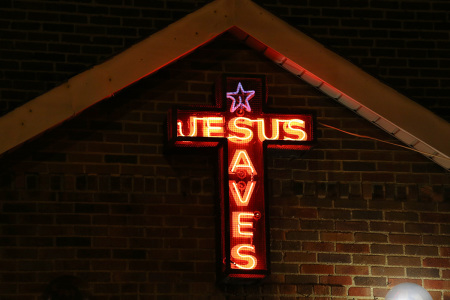22% of Americans identify as 'spiritual but not religious': poll

Nearly a quarter of Americans view themselves as “spiritual but not religious,” according to findings from a new poll. This comes as organized religion continues to lose influence in American life.
The Pew Research Center released a survey examining “Spirituality Among Americans” last Thursday. The research is based on responses collected from 11,201 United States adults from July 31-Aug. 6. It has a margin of error of +/-1.4 percentage points.
The report placed people into four separate categories based on their responses to questions asking if they viewed themselves as religious or spiritual or viewed religion and/or spirituality as important in their lives. While a plurality of those surveyed (48%) identified themselves as both spiritual and religious, 22% classified themselves as spiritual but not religious. An additional 21% classified themselves as neither spiritual nor religious, while the remaining 10% fell into the “religious but not spiritual” category.
As explained in the report, “Spiritual but not religious Americans express more negative views of organized religion than religious-and-spiritual adults do.” Specifically, 42% of spiritual but not religious respondents believe that religion causes division and intolerance, while just 12% of religious and spiritual respondents said the same. Only 13% of spiritual but not religious Americans agree with the statement asserting that “religion encourages people to do the right thing and treat other people well.”
When asked if they had a particular religious affiliation, 45% of spiritual but not religious respondents answered in the affirmative. Twenty-one percent of spiritual but not religious Americans identified as Protestant, while 12% considered themselves Catholic.
However, spiritual but not religious Americans were much less likely than their religious and spiritual counterparts to attend worship services regularly. Only 2% reported attending church services at least once a week compared to 40% of those who see themselves as both religious and spiritual. When asked if they belonged to a spiritual community that was “extremely or very important to them,” 5% of spiritual but not religious Americans answered in the affirmative along with 14% of spiritual and religious respondents.
Additionally, spiritual but not religious Americans found themselves less likely to believe in the God of the Bible than their religious and spiritual counterparts. Twenty percent of spiritual but not religious respondents believe in the God of the Bible, while a much higher share of religious and spiritual Americans do (84%). On the other hand, 73% of spiritual but not religious Americans think that there is “some other higher power or spiritual force in the universe” compared to just 15% of the religious and spiritual.
In addition to analyzing the religious characteristics of the spiritual but not religious community, the research examined other demographic traits of this group. Women constituted a majority (57%) of the spiritual but not religious respondents, as did adults below the age of 50 (58%).
A plurality of the spiritual but not religious participants (37%) were between the ages of 30 and 39, while an additional 21% were between the ages of 18 and 29. While younger Americans amounted to a majority of the spiritual but not religious, 55% of religious respondents were over 50.
Broken down by education levels, the share of spiritual but not religious Americans increases with each passing level of education attainment. Thirty-one percent of the spiritual but not religious had a high school education or less, followed by 32% of respondents with “some college” under their belt and 37% who were college graduates. This contrasts with the demographic breakdown of religious respondents, a plurality of whom had a high school education or less (38%).
Political differences also materialized between the spiritual but not religious and the religious respondents. A majority of the spiritual but not religious (60%) either identified as Democrats or leaned toward supporting the Democrats. By contrast, a majority of religious Americans (55%) either supported the Republican Party or leaned toward supporting it.
When asked if they had become more or less religious over the course of their lives, 49% of the spiritual but not religious respondents asserted that they had become more spiritual. At the same time, 59% said they had become less religious. On the other hand, 44% of religious and spiritual people reported becoming more religious as their lives have gone on, while 57% saw themselves become more spiritual.
Ryan Foley is a reporter for The Christian Post. He can be reached at: [email protected]





















